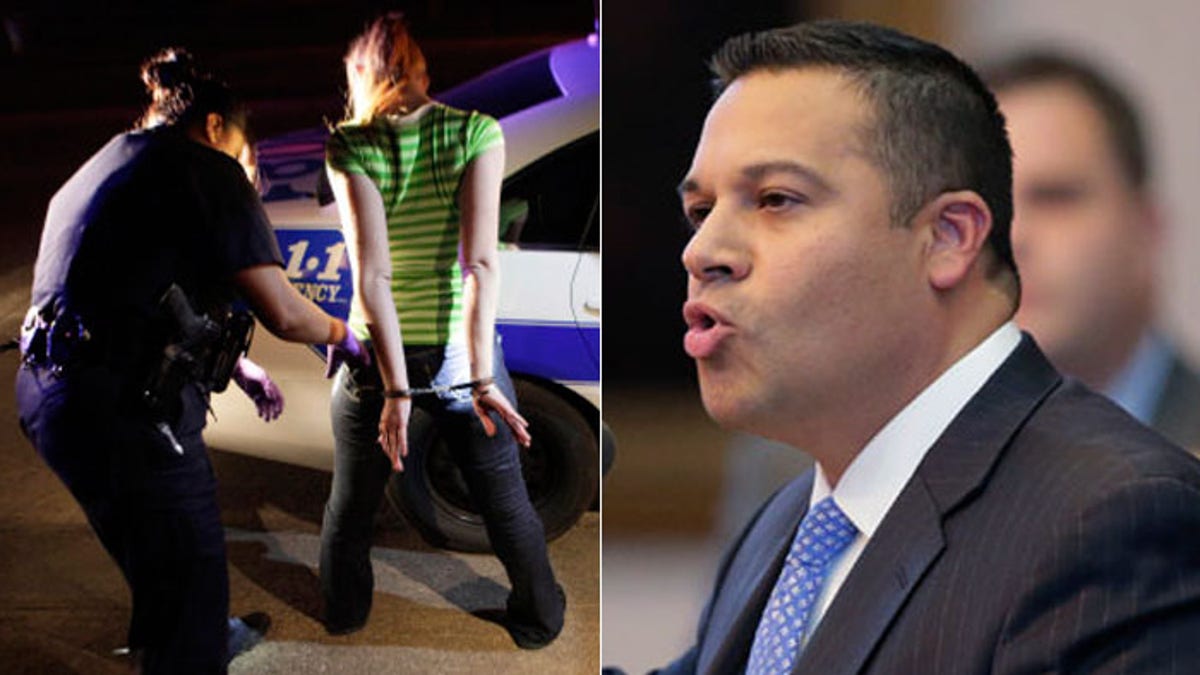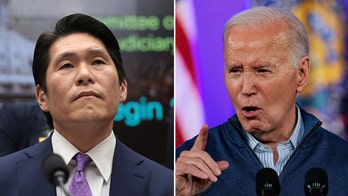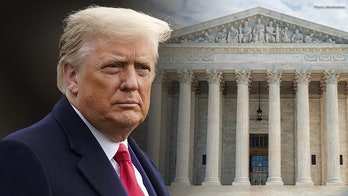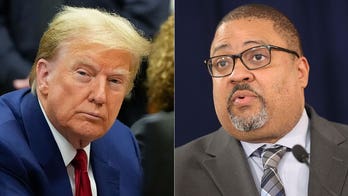
Texas state lawmaker Jason Villalba, (r.), wants to establish a "buffer zone" to keep people away from police as they do their work, as seen above, in photo of Dallas police arresting a prostitution suspect. (AP)
A Texas lawmaker's proposal to establish a 25-foot "buffer zone" around police engaged in keeping the peace is drawing fire from both legal experts and law enforcement groups, but for different reasons.
Dallas-area House representative Jason Villalba introduced HB 2918, which would make it a misdemeanor to photograph police within 25 feet -- raising serious concerns that the bill, if passed, would violate the First Amendment and prevent individuals from holding police accountable. For Texans legally carrying a firearm, the buffer zone required would be 100 feet under Villalba's proposal.
Villalba reportedly said police approached him about creating the legislation, which would apply to everyone -- including journalists. Villalba has since said he'd revise the bill -- changing the buffer zone to 15 feet -- but legal experts as well as law enforcement groups say it is problematic.
"It's very disturbing that you would have an arbitrary and significant buffer zone that would absolutely apply regardless of the circumstances."
"It's very disturbing that you would have an arbitrary and significant buffer zone that would absolutely apply regardless of the circumstances," said William Jacobson, professor and director of the Securities Law Clinic at Cornell University Law School.
Jacobson told FoxNews.com the First Amendment allows for citizens to videotape police who are "acting in plain view and videotaping in such a manner that does not impede the officer's ability to perform his or her duties."
"The mere act of videotaping cannot be deemed an obstruction," he said. "This [bill] is an attempt to prevent people from videotaping police and that you can't just arbitrarily do."
There already are laws in place that prevent individuals from interfering with arrests and punish citizens who impede officers from performing their jobs.
This bill, says Jacobson, is a violation of citizen rights. He referenced cellphone footage taken during the 2014 arrest of Eric Garner in New York as well as amateur video famously shot in 1991 that showed Rodney King beaten by Los Angeles Police Department officers.
"Most of these hot videos are not with TV news cameras," he said.
Jacobson said he wasn't surprised certain police departments would advocate such a bill, but claimed the legislation is unconstitutional.
"They [police] may subjectively feel that the spotlight on them does inhibit their ability to act, but that subjective feeling cannot trump the First Amendment," he said.
Villalba was not available for comment when contacted by FoxNews.com.
During an interview with WFAA’s "Inside Texas Politics," Villalba made clear he wasn't opposed to videotaping police.
"All we’re saying is provide [police] a halo," he told the program. "Give them a little room. We're not saying don’t film. We're not saying stop. We’re saying just step back a little bit."
Meanwhile, Combined Law Enforcement Associations of Texas (CLEAT), the largest law enforcement association in Texas representing more than 19,000 active peace officers, is raising their own objections to the bill -- claiming the arbitrary distances may actually hurt, not help, officers on duty.
"CLEAT has no sympathy for those who seek to harass and interfere with police officers while they’re doing their jobs," said Charley Wilkison, the executive director of the Combined Law Enforcement Associations of Texas.
But, Wilkison said, "We have very real concerns that this bill could have the effect of limiting the discretion that officers need based on the situation they happen to be facing."
"Current Texas law gives the discretion to the officer working the scene to handle it within the guidelines of his/her general order. Current law gives more complete legal authority over police actions at a scene to the trained licensed law enforcement officers," he told FoxNews.com. "By setting arbitrary distance standards, the bill will allow citizens to get dangerously close to officers and suspects in potentially volatile situations. Those arbitrary distances could also compromise the privacy rights of children and other vulnerable members of society."
"Texas law enforcement officers are highly trained and highly capable," Wilkison continued. "Let’s respect their experience and trust their judgment when it comes to enforcing the law and keeping the public safe. Any unneeded tinkering with the law is risky and unnecessary."




